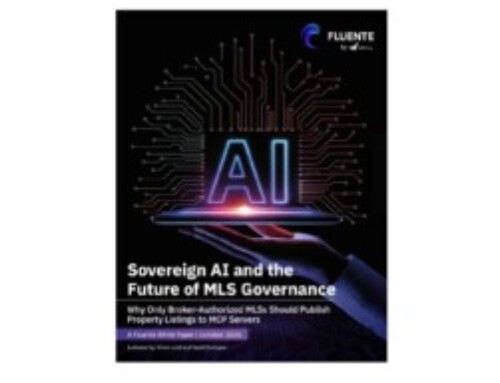As a data junkie, I’ve often wondered why, in a data-rich industry like real estate, do so many decisions still rely on incomplete or inconsistent information? The answer lies not in a lack of data but in our inability to apply the resources necessary to see what the data shows.
That’s where artificial intelligence is beginning to usher in a new era of insight.
AI’s most transformative role in our industry may not be content creation, automation, or even marketing. It’s interpretation. It’s AI’s ability to extract, clarify, and illuminate the hidden signals in data that the human eye either misses or the undertaking is too large to consider.
Today, AI unlocks data in minutes and hours that would take humans dozens or hundreds of years.
AI discovers a $27 billion risk
A terrific recent example comes from a new White Paper by computer vision leader Restb.ai, “The Impact of Condition and Quality on Appraisal Accuracy.”
By analyzing 1,271 appraisals and 6,495 comparable properties using its computer vision tech, Restb.ai discovered that 33.6% of appraisals posed a high risk of valuation error due to flawed condition and quality (C/Q) adjustments. That adds up to an estimated $27 billion in lender repurchase risk.
The problem? Appraisers often work with limited, subjective data points, using a scoring system that is not granular.
Restb.ai found that most appraisers repeatedly use the same two ratings to describe a home’s condition and quality. That’s kind of like calling nearly every house “average” without looking closely at the details.
In fact, more than 86% of homes were given one of just two scores for condition and 97% one of two scores for quality. That’s a problem because if almost every home is labeled the same, it becomes nearly impossible to spot real differences that affect value.
Even more confusing, appraisers often make price adjustments between homes, even when they’ve given those homes the exact same condition or quality rating. That happened nearly 12% of the time for condition and more than 5% for quality. So not only are the scores being overused, but the logic behind adjustments is unclear, making the whole process less consistent and harder to trust.
Restb.ai used a different approach by leveraging an AI scoring system that uses photo-based property analysis, but does the analysis faster and more consistently. Instead of giving a home a vague overall score like “C3” or “C4,” the AI breaks it down with more granular precision. It might see a kitchen closer to a C3.4 and an exterior more like a C4.1. That kind of detail helps spot significant differences between homes that standard appraisals often miss. And when you’re making decisions that affect home values and loan risk, those differences matter.
Appraisers fear AI but need to embrace it
Unfortunately, AI-based research often receives blowback. At the heart of this issue is fear. Many appraisers worry that AI is coming for their jobs and, as a result, dismiss its value outright.
But the intent is just the opposite. The most compelling argument for AI isn’t that it replaces appraisers. Utilizing AI strengthens them.
Using photo-based scoring to detect differences faster and more efficiently, AI gives appraisers a defensible, data-rich foundation for their assessments, more time to do more appraisals, and increases their income.
Fannie Mae has already acknowledged this shift, noting that appraisers who adopt rigorous, fact-based C/Q ratings will hold a competitive edge as the industry modernizes. Those who don’t may find themselves flagged more frequently for defects, subject to reconsideration of value requests, or even pulled into quality monitoring.
Unlocking more data
Restb.ai’s remarkable research highlights a better path for tapping into more data-driven decisions by leveraging AI. It’s not about “man versus machine” but about using better tools to do better work.
AI is helping us raise the bar in an industry where trust and precision are vital. Appraisers resisting this new tech shouldn’t worry about AI replacing them; they should worry about appraisers who use AI taking their jobs.
Check out the Restb.ai White Paper for yourself here.





